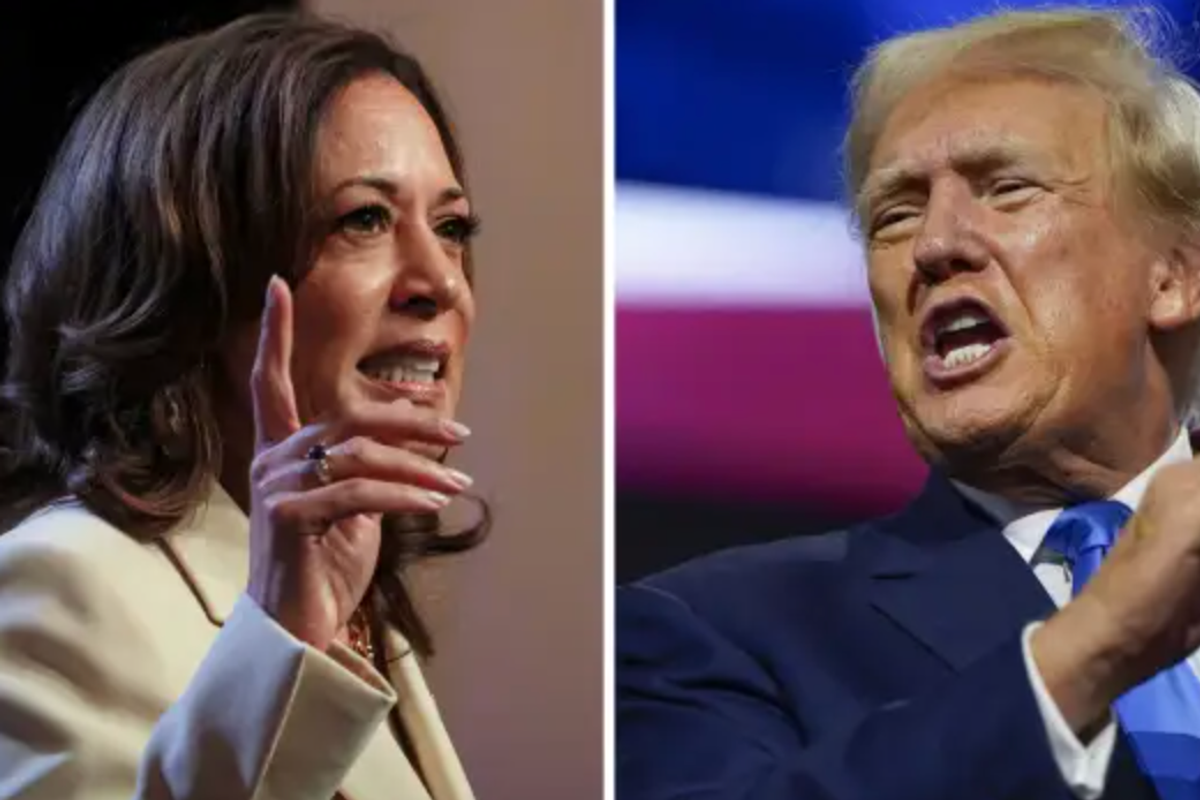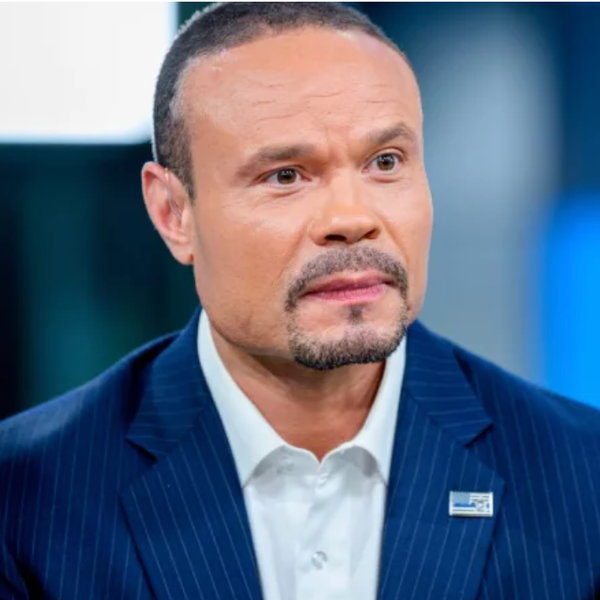
During last week's presidential debate between Vice President Kamala Harris and former President Donald Trump, a topic many Democrats and Republicans did not expect to come up did: student debt, a crucial issue to young people like me.
Although not directly asked, Donald Trump managed to turn a rebuttal about abortion into the shortcomings of the Biden-Harris Administration’s efforts to cancel student debt. “It reminds me,” Trump said, “of when they said they were going to get student loans terminated and it ended up being a total catastrophe.”
The candidate most likely to cancel student debt and work to make public university education free or nearly free is unequivocally Harris.
He continued discussing student debt for more than a quarter of his response time before returning to abortion.
The moderators next asked Harris about at what stage abortions should be legal, leaving viewers unsure about where Harris stands on student debt relief. However, her views on student debt seem to offer a promising future to those currently owing or planning to take out student loans.
As a senior in high school, currently applying to colleges, financial aid seemed straightforward: those who need it would be able to obtain it. However, after listening to people who have already taken out huge loans in their freshman years of college, something about the system didn’t seem fair.
The idea is that for some, the college experience could be carefree and a time to explore, while for others, it would be spent in worry about what college major will make the most money to pay back their debt. College should not only be available to the elite and the few who can secure scholarships. While state schools offer great education, in most cases, one should not have to shrink their horizons because of money.
Additionally, those bold enough to take out loans in the hopes of paying them off with a college graduate level job, in many cases never do, as a result of less than expected pay, unexpected events like illness or injury and other realities that crush dreams.
In a survey, one in four Americans with student loan debt — for their education or someone else’s they have guaranteed such as parents and grandparents — told Bankrate.com that they are having trouble affording their monthly payments or have skipped at least one monthly payment since October 2023. That’s when a payment forbearance period, put in place during the COVID pandemic, ended.
That survey and other data suggest that many Americans have a stake in student loan relief, which many people want and some others believe is an improper form of welfare.
While Harris did not explicitly address student debt relief, she did tout two of her “opportunity economy” policy proposals. One would give people starting a new business a $50,000 tax deduction, ten times the current amount. The other would be a $25,000 subsidy for first-time home buyers.
Both proposals would need congressional approval, which is unlikely unless Democrats regain control of the House and keep control of the Senate in the Nov. 5 elections.
Court Challenges
Biden’s various student relief efforts were all challenged in court. Some judges, including the Supreme Court, held that Biden exceeded his authority under existing law to compromise or cancel student debt.
If Harris were to consider canceling student debt, the direct effect would be raising the net worth of each debtor by the exact dollar amount of debt canceled. In this scenario, many debtors would instantly have the financial muscle to start a business or buy a home with a mortgage. Large student debt makes banks understandably leery of extending credit for a risky venture like a new business or buying a home.
Trump further claimed, “Her boss (Biden) went out and said we’ll do it again but a different way. He went out, got rejected again by the Supreme Court.”
What Trump is suggesting was indeed a loss, but not entirely.
According to one of the nation’s leading advocates for student debt cancellation, Astra Taylor, “Biden’s attempt to cancel student debt wasn’t as good as it could be, but it definitely wasn’t a catastrophe.”
Biden, through executive orders, canceled some or all of the debt of five million Americans. The Biden administration stated they have erased $168.5 billion in student debt, less than a tenth of the total outstanding.
Taylor was critical of Biden’s precise administrative mechanisms, which Harris also might use to cancel all student debt. She advises, “Joe Biden could have issued relief in a way that would have made it difficult, if not impossible, for the right wing to sabotage it. Use the executive power as smartly and as boldly as possible.”
Congress has full power to erase, reduce or otherwise give relief from student loan debt. Congress also sets the interest rates on student loans, which it could set at zero. However, so long as Republicans control either chamber, any student loan relief seems unlikely.
Congress could repeal the law that prevents those crushed by student loan debt from seeking refuge in the Bankruptcy Court. Alan Collinge of Student Loan Justice explains the loss of this constitutional right here.
Of the two choices, Trump and Harris, the candidate most likely to cancel student debt and work to make public university education free or nearly free is unequivocally Harris. A 2017 Tweet by Harris, then the junior senator from California, supported legislation to make college tuition-free for most Americans.
The organization, The Debt Collective, which Taylor co-founded, owes some of its origins to Harris’ work as California attorney general. Harris prosecuted a chain of for-profit schools known as Corinthian Colleges, Inc. where she exposed abuses of students.
“It was actually by organizing with the students of that predatory for-profit college that the debt collective got its start,” Taylor shares.
Harris won a $1.1 billion judgement against Corinthian.
Harris’ dedication to support students of the predatory chain continued into her vice presidency when she announced the student debts from this predatory for-profit college would be canceled.
Heavy Burden
Student loan debt weighs heavily on many voters and will affect how many of them vote, a PBS/Marist poll found.
Prior to the debate, the poll showed that 44% of GenZ/Millennials voters said the debate would have a great or good influence on how they cast their ballot. Student loan erasure is a contentious issue not only for those already buried under debt, but also for new college students, who are unsure if they are destined to end up like the older Americans, taking debt to the grave.
Although Harris has a slight 2-point edge over Donald Trump among voters under 45, she still falls seven points behind the lead that Biden enjoyed in 2020. Getting young voters excited about a candidate when 25% of them consider her “too conservative” poses a challenge. The other candidate is far more conservative, making rejection of Harris on these grounds politically inchoate.
Harris received some good news less than a half hour after the debate ended. Singer Taylor Swift, with a massive following on Instagram of 238 million, endorsed Harris through a post. Many of her fans could be swayed by her Instagram post expressing support for Harris’ leadership capabilities and ability to stay calm. Swift also commended vice presidential candidate Tim Walz’s positions on LGBTQ+ people, in vitro fertilization or IVF for couples who have trouble conceiving and a women’s right to decide medical care.
While endorsements by entertainers have never been shown to have much an effect, this time may be different. Swift may play a key role in winning that decisive young vote. The following day, 30,000 people visited Swift’s link on registering to vote, locations and early voting dates.
Harris has the opportunity to win over many young voters — perhaps enough to ensure victory — if she promises bold action to eliminate student debt, which will become a decades-long burden for some students under current policies. Since providing relief aligns with her beliefs, promising to push Congress to act, and to take administrative steps if Congress doesn’t, could convince many new and young voters that she is bolder and more progressive than Biden.
Katherine Kelton is a high school senior who covers the issues regarding young people. She works as a journalist at both her local Long Island newspaper and her school paper.
Reprinted with permission from DC Report.








